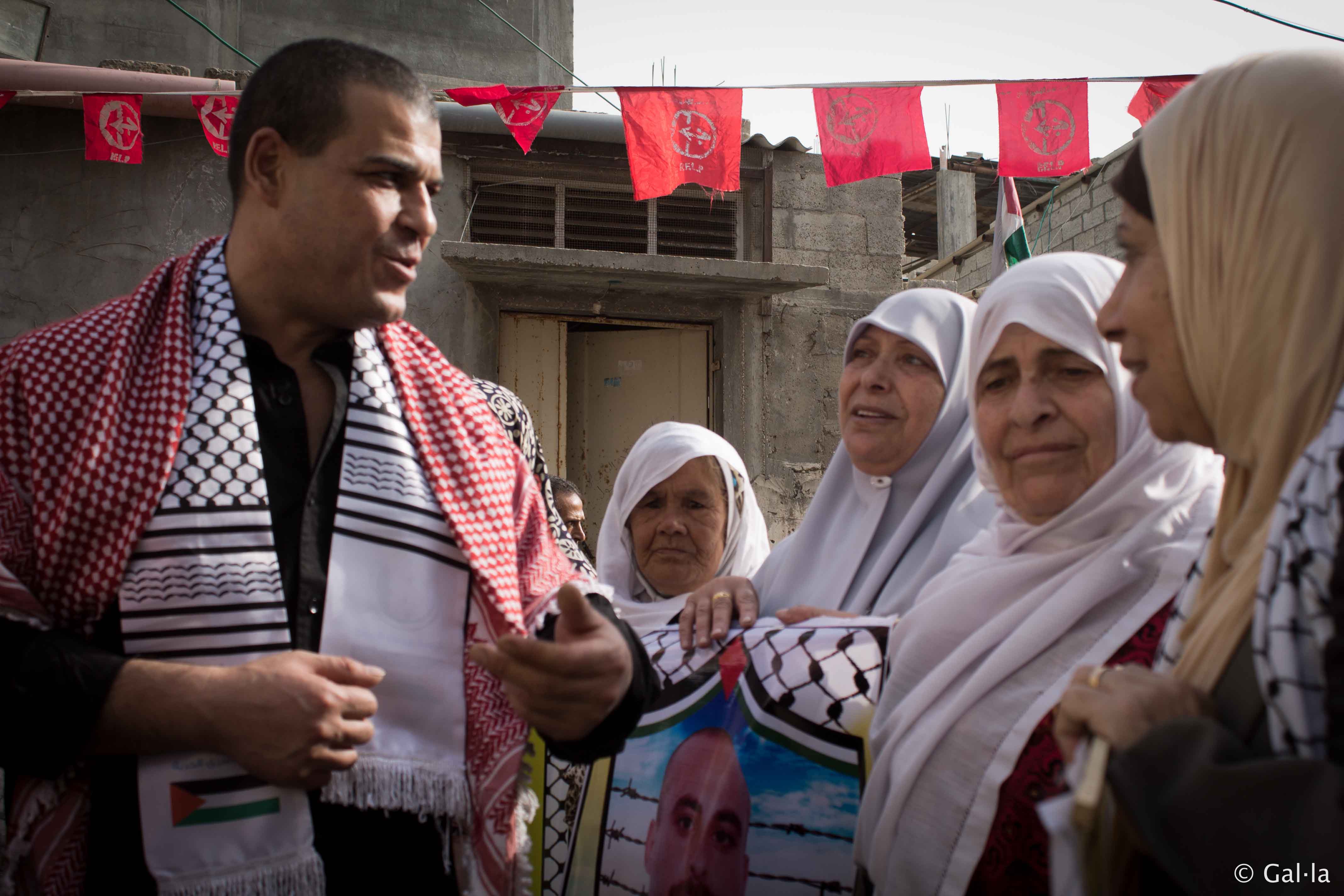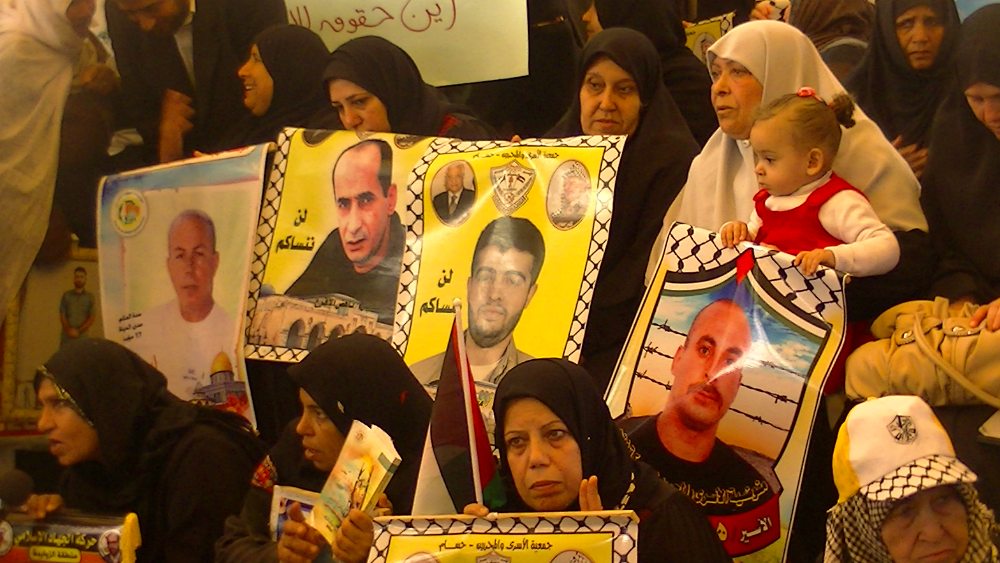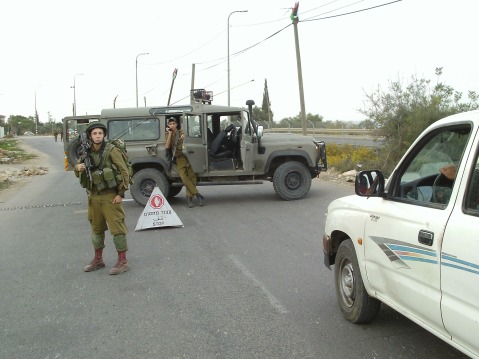Category: Reports
-
“I’m very happy now beside my family,” newly freed prisoner says at Gaza rally
26th November 2013 | International Solidarity Movement, Marco Varasio | Gaza, Occupied Palestine On Monday morning, relatives and friends of Palestinian detainees, as well as Palestinian and solidarity activists, rallied at the International Committee of the Red Cross’ Gaza office to demonstrate their support of the Palestinian prisoners. The rally started with the chanting of slogan…
-
Palestinians hold solidarity vigil to remember prisoners in Israeli jails
25th November 2013 | Corporate Watch, Tom Anderson and Therezia Cooper | Gaza, Occupied Palestine Palestinians held a demonstration at the offices of the International Committee of the Red Cross (ICRC) in Gaza City today in solidarity with Palestinian political prisoners in Israeli jails. The demonstration has been held every week since 1995 to remember the prisoners…
-
Continuing harrassment of Izbat Tabib village
25th November 2013 | International Solidarity Movement, Nablus Team | Izbat Tabib, Occupied Palestine Yesterday, November 24th, Israeli soldiers blocked the road at the entrance to Izbat Tabib and entered the village on three separate occasions during the night, firing tear gas canisters and intimidating residents. At approximately 14:30, a military jeep carrying four soldiers set…



